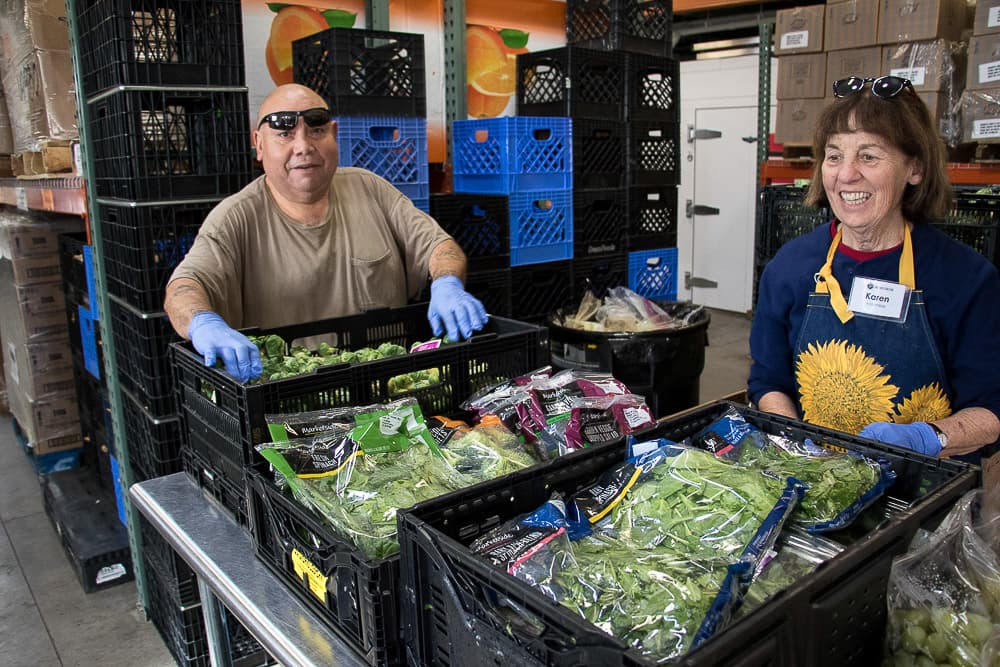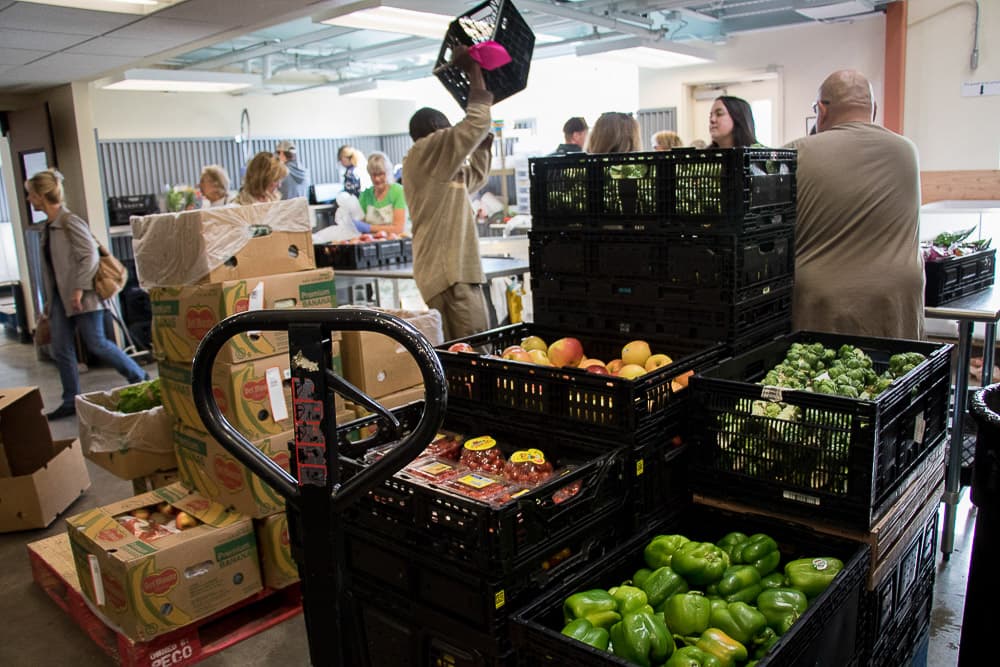
There’s a nip in the air and, however prematurely, string lights on the trees in downtown Denver—as you may have noticed, the holidays are here.
And while for some, the holidays mean binging on Turkey, for the estimated one in eight Coloradans who experience hunger, the holidays are a different story.
It’s for those residents that Metro Caring and other hunger prevention organizations work to provide free food. And while the holidays may be a time when hunger is near the forefront of the public conversation, Metro Caring works with local food pantries, grocers and individuals year-round to ensure hungry residents don’t go without meals.
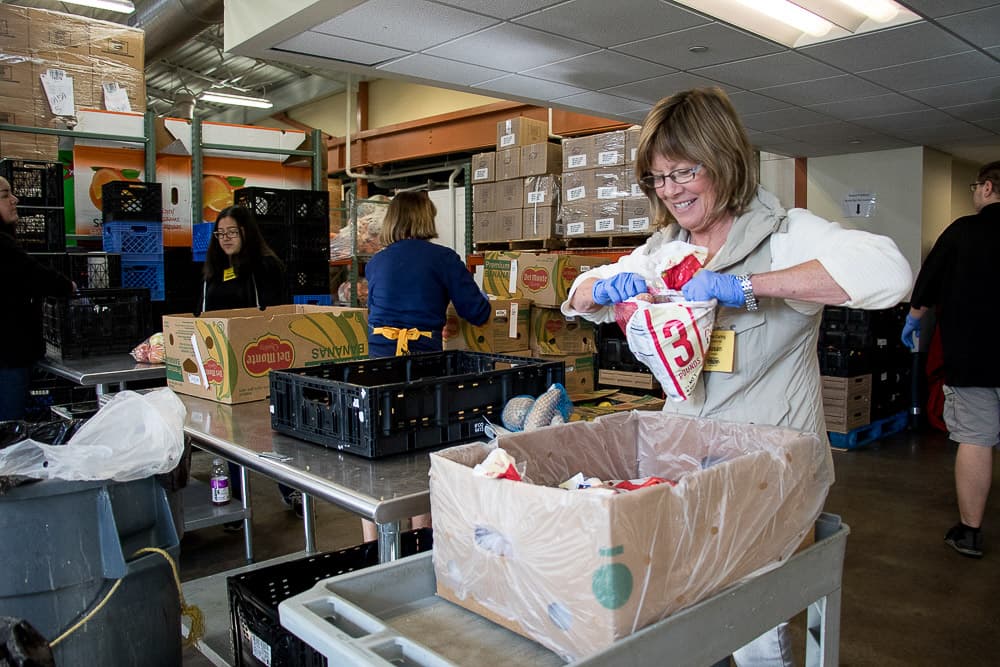
“The reality is, even around the holidays, children don’t need an iPad, they don’t need a bicycle–while those things are wonderful–what children need is adequate nutrition,” said Ryan Galanaugh, a spokesperson for Metro Caring. “It’s the most basic of human needs.”
Metro Caring dispenses groceries to about 100 families a day from their in-facility market. Families come from 123 different zip codes to shop at Metro Caring’s free market, where once every 30 days, they can pick up enough groceries for a week.
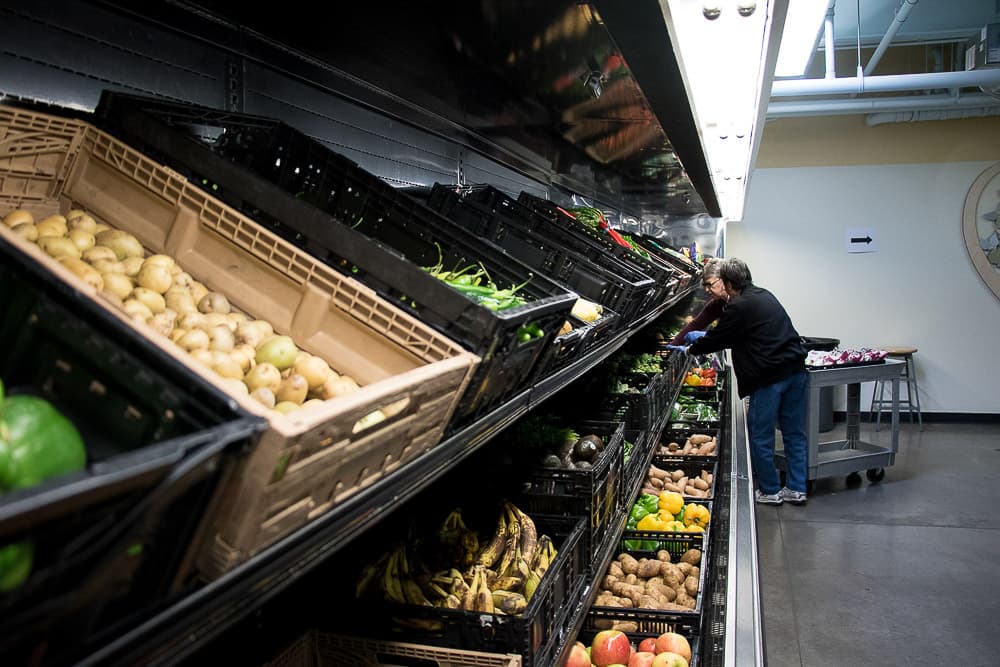
Community members in need, who Metro Caring calls “participants,” can also partake in nutrition classes, cooking classes, growing projects and can even volunteer, all on-site at Metro Caring’s year and a half old hunger prevention center at 18th Avenue and Downing in Denver.
Metro Caring calls itself a “hunger prevention program” because these programs treat hunger as a symptom of a deeper problem: poverty. And in that, it differs significantly from a food bank, food pantry or soup kitchen.
Food banks, like the eponymous Food Bank of the Rockies, store food. They act as behind the scenes food collectors, who supply front-of-the-lines operations, like soup kitchens, food pantries and organizations like Metro Caring, with food.
The hungry cannot actually go to a food bank to get food.
Soup kitchens and food pantries dole out food, but Galanaugh pointed out that these operations only provide enough food to feed a family for one to two days at a time, in large because most food pantries vie for the same supply of food.
"As a hungry person, you go to food pantry A to get a day's worth of food, two days worth of food--it's not enough," he said. "So you have to go to a second food pantry, maybe even a third food pantry. Then all of a sudden, being poor has become a full time job."
And oftentimes those foods are canned and processed. But Metro Caring has established creative relationships that enable them to procure fresh food and even toiletries for those who come to their market.
Metro Caring works with grocers, like Trader Joe’s and Whole Foods, their suppliers, local farmers, gardeners and even Denver International Airport to secure food for their market—72 percent of what they dispense overall is fresh food.
Part of how they manage to accumulate so much food, is by working with community members, farmers and their donors to cut back on food waste. According to Galanaugh, about 20 percent of food in-home never gets eaten, so Metro Caring teaches its participants to maximize the utility of their food.
One way they do this is by posting expiration date guidelines in their markets.
"How long does it last past the expiration date?" The sign reads. "Milk: 7 days, Eggs: 3 - 5 weeks, Dried goods: Indefinitely."
They also advise their participants to only take as much food as they need. Galanaugh said most residents take about 87-88 pounds of food for a week.
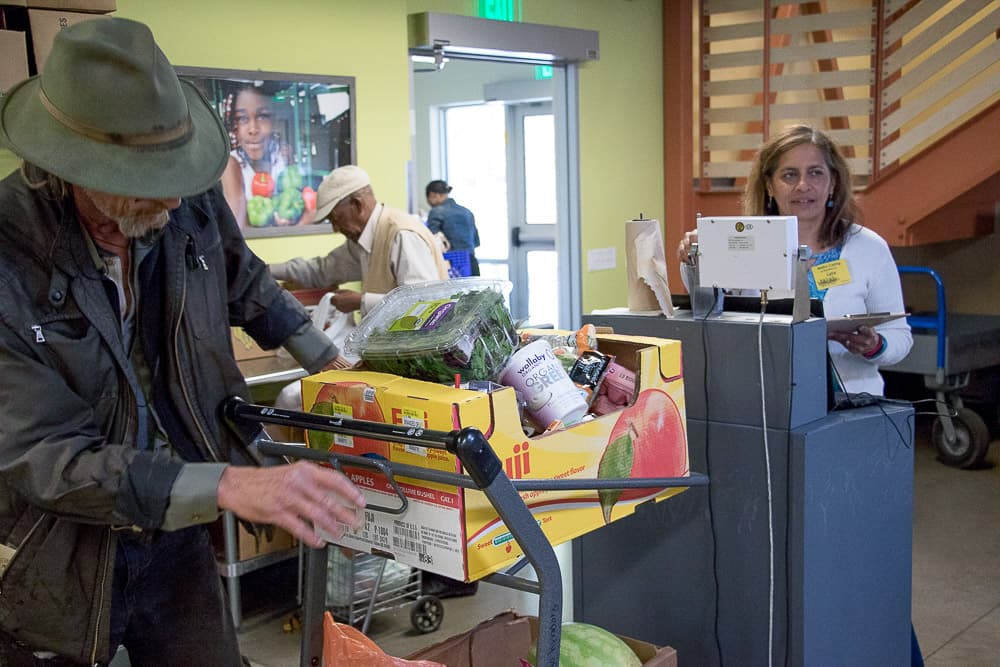
And seasonal fruits and vegetables grown in a small greenhouse on-site function to supplement the supply, but prove more useful as tools to teach participants about how to cultivate a garden.
In addition to working in the garden, participants can learn how to cook, how to manage conditions, like diabetes, and more. And that is all part of Metro Caring's plan to change the behavior around food, with the hopes that those behavior changes will translate to lifestyle changes for their participants.

The holidays, of course, raise the stakes at Metro Caring. This year, they will be giving away turkeys to families the week leading up to Thanksgiving.
But this time of the year, Galanaugh emphasized, is not much different than the rest of the year when families still struggle to find food. And the same protocol applies for receiving food during the holidays as at other times.
In order to participate in Metro Caring's services, those interested must call ahead to make an appointment, usually about three days in advance. In the event they do not have access to a phone, participants may come in person to make their appointment.
This formality may seem limiting, but Galanaugh says the system keeps the market free of congestion so Metro Caring can continue to treat citizens with dignity while shopping.
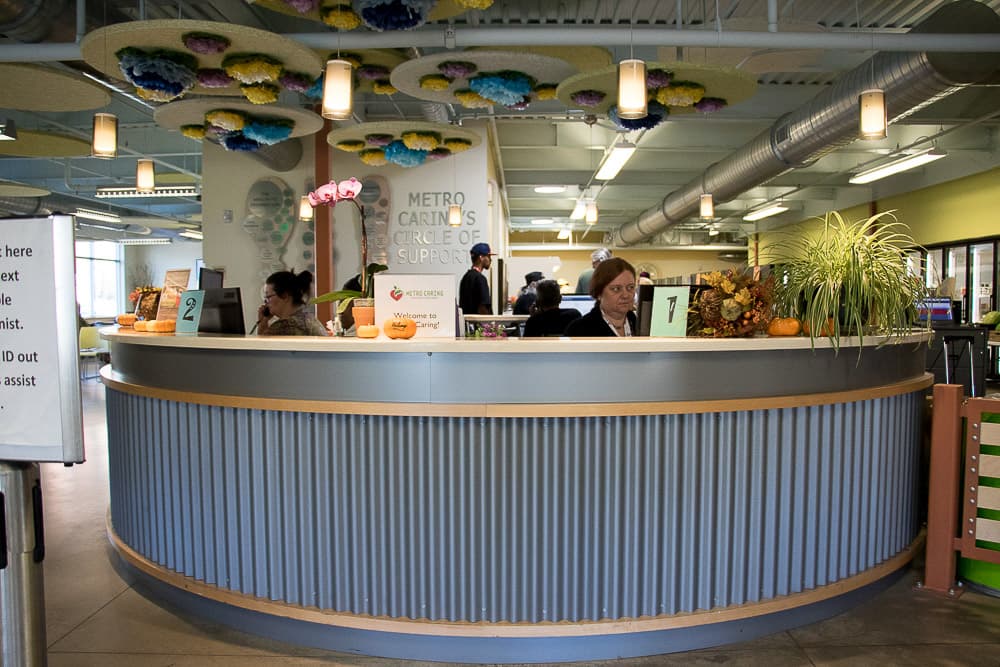
But where does all the funding come from?
About a year and a half ago, construction finished on the current hunger prevention facility, which was made possible by a $5.6 million capital funding campaign. Other donations come from foundations, businesses and individuals. The average donation is about $100, according to Galanaugh.
Metro Caring also thrives through the generosity of the almost 2,300 yearly volunteers, who sort food, stock food, compost and more. And anyone can volunteer with Metro Caring.
Individuals can, of course, donate food. Metro Caring accepts donations Monday through Friday from 8 a.m. to 4 p.m. and Tuesdays from 5-7 p.m. But those at the organization hope that community members looking to donate will go above and beyond the leftovers they find in the backs of their pantries.
They provide updated shopping lists to encourage healthful donations:
- 6 cans of Tuna
- 2 boxes of Whole Wheat Pasta
- 2 jars of Peanut Butter
- 1 bottle of Cooking Oil (canola or olive oil)
- 2 bags of Rice
- 3 cans of Corn
- *Look for “no salt added”, “low sodium”, “no sugar added”, “whole grain”
Multimedia business & healthcare reporter Chloe Aiello can be reached via email at [email protected] or twitter.com/chlobo_ilo.
Subscribe to Denverite’s newsletter here.

